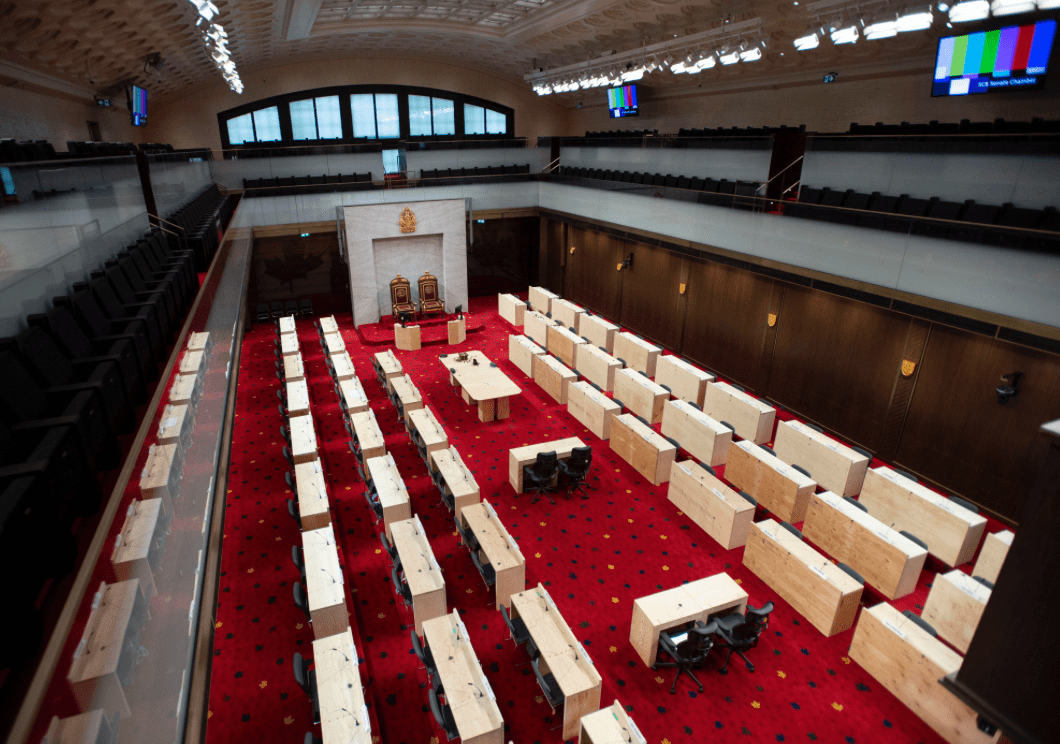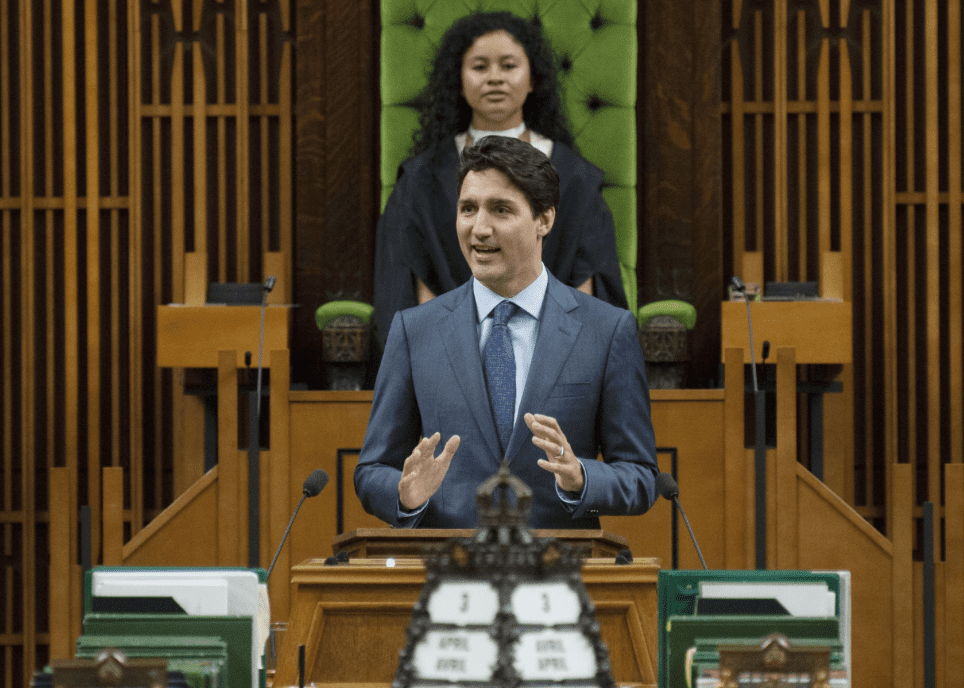In the days since Government Leader in the Senate err, "government representative" Senator Peter Harder dropped his nuclear programming motion that would affect eleven bills at various stages, there was a great deal of pushback. The Conservatives went to war over it, and within 48 hours, Harder was forced to withdraw it. But that doesn't mean that agendas aren't coming out of the woodwork over this, and that the various factions in the Senate aren't trying to use the Order Paper crisis for their own ends. So while an agreement on timetables for certain bills was reached, Harder once again overplayed his hand, and came away wounded as a result.
With a lot of threads to pick up on in this, let's start with the Conservatives calling Harder out as a bad faith negotiator in the Chamber. The Conservative whip, Senator Don Plett, stated that he had an agreement with Harder on Bills C-75 and C-85 to fast-track them.
"Your words to me when I left your office were that if I could make that change [on these bills], you would not introduce a programming motion," Plett stated. "I had never heard of a programming motion. I kept my part of the bargain. You did not. In complete contradiction of your word to me, you tabled a programming motion that is seven pages long and impacts 11 bills."
Harder refused to take responsibility for it, and very quickly the Conservatives moved to adjourn the Chamber for the day, before Harder could start debate on his motion, and they managed to get enough votes to do so. It was a taste of what would happen every day until Harder withdrew the motion, and Thursday afternoon he did. He claimed he came to an agreement with the leadership of the other groups, but my own sources indicate it was more of a case that the deal was imposed on him. Much of this timetable that was agreed to had been in the works for weeks and he didn't want to play ball, but no longer had a choice.
The final timetable that was agreed to contains dates that are later than Harder wanted in some cases, and don't have third reading dates on some major legislation that the Conservatives in particular are opposed to, such as bills C-48 (tanker ban) and C-69 (environmental assessments). That means that Harder will need to try his luck at time allocation or closure on those when the time comes, but those would be individual motions on individual bills at third reading not a sweeping motion on eleven bills at various stages.
Throughout this drama, however, the Independent Senators Group tried to insert themselves as a voice of moderation, but they had an agenda at play as well. There are some key phrases in their press release that stick out one of them is that they want "an orderly process for the review of Government bills, including timelines and end-dates for the passage of bills through the Senate." This reads to me as code for a desire for a business committee, whose purpose would be to essentially time allocate all business in the Senate rather than allow for the current process of negotiation that the ISG should be participating in. I'm firmly opposed to the notion of such a committee because it takes away from the powers of individual senators to speak to any item on the Order Paper that they choose, and because it's simply time allocation by stealth.
The ISG's "facilitator," Senator Yuen Pau Woo, also blamed the Conservatives for not including the ISG in their negotiations, which misplaces the blame entirely it's not the Conservatives' job to bring the ISG to the table, it's Harder's. That is, for what it's worth to bring the ISG to any table because they don't whip their members, so they have no way to enforce agreements. But this also ignores the fact that negotiations between the caucuses are supposed to take place daily at the "scroll meetings" which the ISG participates in. Well, "participates," given that they don't engage in the horse-trading that gets business moved in the Senate because they believe that to be "partisan." They have ample opportunity to negotiate, so claiming otherwise is bogus.
Woo also used another key phrase, which was that they found themselves in that position of Harder bringing in the programming motion because "the Opposition in the Senate does not recognize the Independent Senators Group as a legitimate group on par with partisan caucuses in the Upper Chamber." This is almost certainly a reference to the changes to the Parliament of Canada Act that Woo has been agitating for, which would give the ISG or any other group that may splinter off of them official recognition at a certain size, and would entitle their leadership to new funding. This late in the parliamentary calendar, it's unclear if the government will be willing or able to table any changes to the Act, though there has been suspicion that it may wind up as part of the upcoming omnibus budget implementation bill, and it would be a question of how extensive the proposed changes would be, because changes to that Act may require sign-off from the provinces if they're extensive enough, according to some legal analyses. Regardless, Woo is using this crisis to push his own agenda forward while also trying to make the Conservatives look like they're the unreasonable party at the table. They're not.
While it's indisputably a good thing that Harder backed down and withdrew the motion, it nevertheless leaves the problem that he didn't think about the kind of precedent that he was setting with a motion like this. Imagine any future government deciding that they can bigfoot the work of the Senate with a motion like this so long as they have enough seats, or can corral enough Independents to their side by whatever means they can muster. It's insane, and yet Harder went there without much hesitation, and rationalized it as trying to own the Conservatives, because partisanship is bad. It also confirms suspicions that Harder has been precipitating the crisis on the Order Paper in order to convince the Senate that they need a business committee, and Woo's release is indicative that they're open to that, which is a problem. Above all, it's hard to see how Harder's remaining as Government Leader can continue to be tenable with this big of a miscalculation. Granted, prime minister Justin Trudeau can continue to neglect the Senate and the mess he's created with Harder's ill-considered appointment, so Harder may remain in place. Nevertheless, it's looking increasingly like this attempt at "doing politics differently" with the Senate is blowing up in Trudeau's face.








